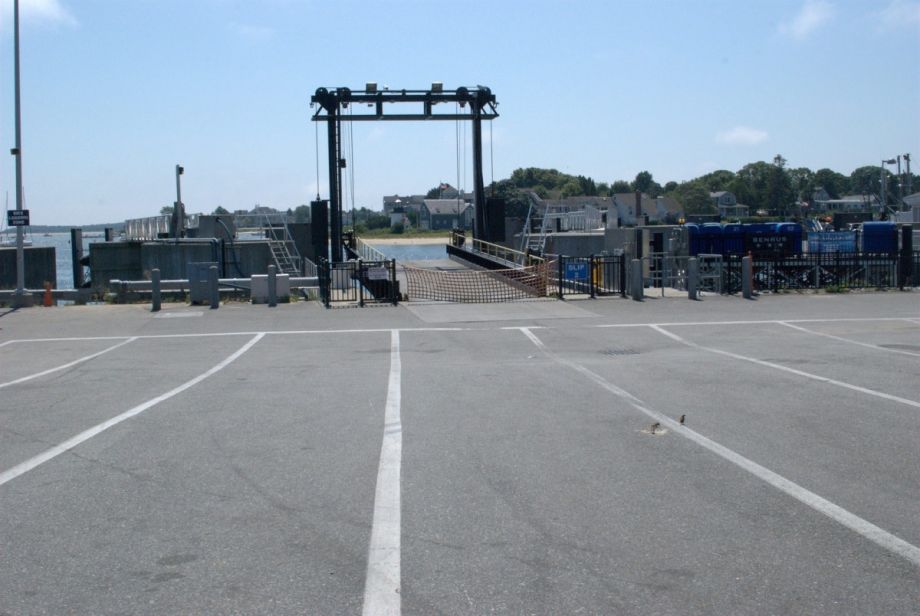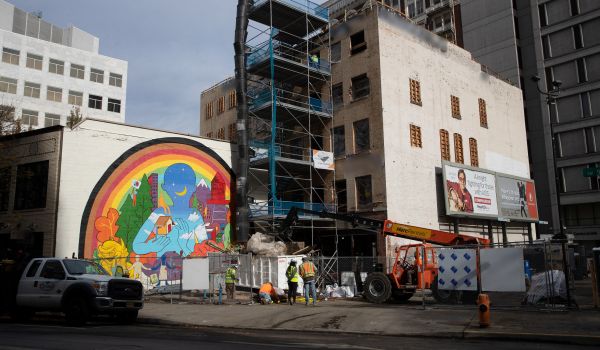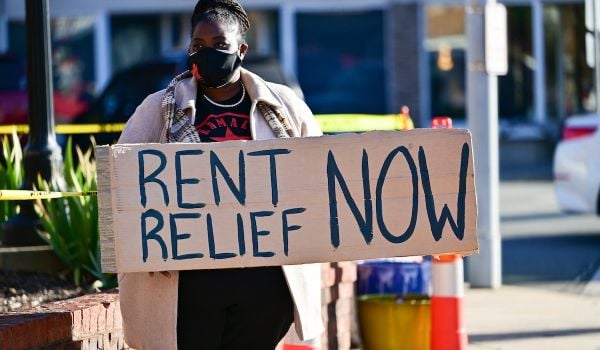Located in downtown Hyannis, the commercial and transportation hub of the Cape Cod region of Massachusetts, Angel House has no welcome sign. Clients and volunteers can only find it if given the address by an Angel House staff member or an employee of the Housing Assistance Corporation, the nonprofit affordable housing organization that operates Angel House.
The seclusion isn’t meant to make getting help more difficult, but as a promise to protect Angel House’s clients, coming from Cape Cod and from all over the state. On April 1, 2018, Angel House celebrated twenty years of protecting and rehabilitating the most vulnerable people within a largely homeless population – women living with addictions, including pregnant women, and their children.
“I recently asked a woman how her first night was at the house,” says Lin Rohr, the Director of Angel House, and 25 years an ordained Presbyterian pastor. “She told me it was awful. I was surprised. But when I asked her why, she told me that the night before coming here, she was sleeping against a steel wall, in a warehouse, with a knife in front of her to protect her baby. ‘Now,’ the woman said, ‘I’m in a bed with pillow and people are checking on me and asking me if I’m warm enough. That’s a lot to figure out.’”
Unlike most rehabilitation programs, which are only 90 days, Angel House allows clients to stay for up to a year and, more importantly, bring their children with them, whether that child is a newborn or up to a senior in high school. Angel House shelters and treats up to 45 women and 35 children annually.
Studies, particularly one by American Addiction Centers, reveal that women are less likely to seek treatment for addiction because they have commitments, predominantly children, of whom they don’t want to lose custody. Furthermore, they are more likely than men to become addicted to opioids.
“For a mom to have to choose being in treatment and her kids is horrendous. That is where we feel really committed to the vision that we have here, to keep families together while moms work on their recovery,” says Rohr.
And Rohr has discovered during her time at Angel House, the inextricable link between trauma, addiction and parenting.
“We call it re-parenting the parent. Many of our clients, are themselves children of parents in recovery or their parents may still be addicts,” Rohr says. “And they may have experienced things like having never been cuddled but their kiddos need to be cuddled. So we ask them what was challenging about their childhood and [if] they are choosing to do it differently.”
Addiction on Cape Cod does not have an off-season like the local shops and restaurants that are boarded up come Labor Day. Opioid abuse, whether prescription pills or street heroin, is rampant here and Rohr sees it first-hand.
“Our clients struggle with opioid, alcohol, prescription medication addiction … the largest percentage is opioids, particularly heroin or fentanyl. It is very scary,” she says. “Our clients are recognizing how scary it is, how they don’t always know what they’re getting anymore and there can more serious complications as they are trying to get into the work of recovery.”
Half, if not more, of the women and children at Angel House end up coming from Cape Cod which is a complicated situation. On Cape Cod, rates of overdoses, resulting in death or resuscitation with Narcan, are increasing year after year. It’s a challenge for treating addiction.
“With addiction, there is a benefit to leaving a familiar place and seeking treatment. There is a feeling of ‘I have to get away and I’m glad to get away.’ But I have clients who really feel they can’t leave the Cape,” Rohr says. “They have someone who keeps them here so we have to work with them on that.”
The individuals who tie Angel House’s clients to Cape Cod can serve as a positive support system or a barrier to continued sobriety. This is why a major incentive to graduate from Angel House is that Rohr and her team find each client and her children housing.
Ninety-two percent of the women who complete or graduate Angel House’s rehabilitation program leave with permanent housing, according to Rohr. “It gives them self-respect and independence from parents, a boyfriend, a baby daddy, or a dealer,” she says. “This independence is huge for the success of our families.”
When asked why there aren’t more resources for addicted women, most of whom are single mothers, Rohr points out the importance of residential treatment. Unlike a standard 90 day program, a residential program demands 24/7 supervision and constant resourcing.
“We believe that if we immerse our clients in a residential program that has 24 hours a day supervision, we can combat relapse and urges,” Rohr explains. “If a woman is triggered at 3 a.m., if they feel loneliness, boredom, anger, there is someone downstairs to talk to them.”
Being able to identify relapse triggers is an essential part of any addict’s recovery and to maintain their sobriety. Rohr explains that if a client can achieve 14 months of sobriety, if they were to ever relapse; achieving sobriety again would not be as difficult. But they have to put the work in.
“Our clients know the language — I want to live clean and sober, I want to have my children. But what does that look like?” Rohr says. “I always say, I won’t hold your hand, but I will walk with you.”

Nico Gendron has worked for The New York Times in Strategy, and covers culture, arts and society as a freelance writer. She is a native of Boston and Cape Cod.
Follow Nico .(JavaScript must be enabled to view this email address)
















